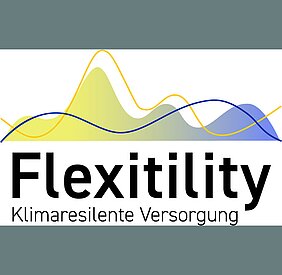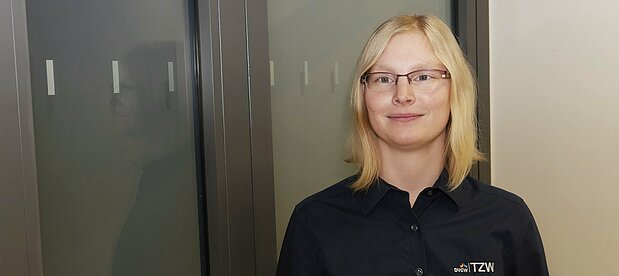The impacts of climate change require the transformation of water and wastewater infrastructure towards climate-resilient systems. Making infrastructure and resource management more flexible is one possible strategy. In order to test promising measures such as water reuse and intermediate storage for drinking water, the implementation phase of the BMBF research project "FLEXITILITY" started in October with the participation of TZW.
After the successful completion of the R+D phase of FLEXITILITY, possibilities of water reuse for agricultural irrigation and decentralised intermediate drinking water storage are now being tested in the supply area of the Herzberger Wasser- und Abwasser-Zweckverband (HWAZ) in southern Brandenburg. "At the end of the project in 2024, we want to provide municipalities and utilities with concrete recommendations on how they can make their infrastructures more flexible in this way." says project coordinator Dr. Shahrooz Mohajeri of inter 3, describing the task. The overriding goal is to contribute to the climate-sensitive design of public utilities.
Focus on water reuse and intermediate drinking water storage
For testing water reuse, treated water from a wastewater treatment plant is disinfected and used to irrigate animal feed and energy crops. An agricultural area totalling 12 hectares is irrigated partly fully, partly in deficit and partly not at all. To assess risks to humans, animals and the environment, all relevant parameters in the irrigation water, in the soil, on the plants, in the groundwater and on the irrigated grassland are measured and analysed. To this end, a risk management plan is drawn up in close cooperation with the relevant stakeholders.
With the aim of flattening peak loads in the drinking water network, selected customers are equipped with intermediate storage facilities for drinking water. The focus of TZW's work lies in this part of the research project The daily fluctuating demand for drinking water in the connected buildings is covered by the storage tanks, which are only filled with a low but continuous volume flow. Operational requirements, costs and benefits are determined in test series. The hygienic and technical safety of the storage operation is guaranteed by intensive monitoring. In addition, the effectiveness of the reservoirs in the context of extreme weather consequences for the operation of the entire drinking water network will be scaled up and modelled. Furthermore, a model developed in the R+D phase for the assessment of municipal climate resilience developed in the R+D phase is now being applied in practice.
The "FLEXITILITY" research project: practical and regionally anchored
The project started in 2017 with a definition phase in the Anhalt and South Brandenburg region, in which flexibilisation approaches and their potential on the producer and customer side were identified. In the subsequent R+D phase, promising solutions were practically investigated in various real laboratories and modeling. In addition to technical options, research was also conducted into how more flexible consumption could be achieved on the customer side. The research project "FLEXITILITY: Flexible Utility - With socio-technical flexibilisation to more climate resilience and efficiency in urban infrastructure" is funded by the German Federal Ministry of Education and Research (BMBF) until September 2024 as part of the flagship initiative Future City. Other partners in the research network in the implementation phase are, in addition to inter-3, the Brandenburg University of Technology Cottbus-Senftenberg, the DVGW Technology Center for Water (TZW), the Federal Environment Agency, the city of Herzberg (Elster), the Herzberger Wasser- und Abwasserzweckverband (HWAZ) as well as the agricultural cooperative Gräfendorf eG.
Project website www.flexitility.de

![[Translate to English:] Prüfstelle-Produktprüfung_Teststand Test centre and product testing](/fileadmin/_processed_/0/9/csm_TZW-Karlsruhe_Pruefung_Geraete-Teststand_377188946c.jpg)

























